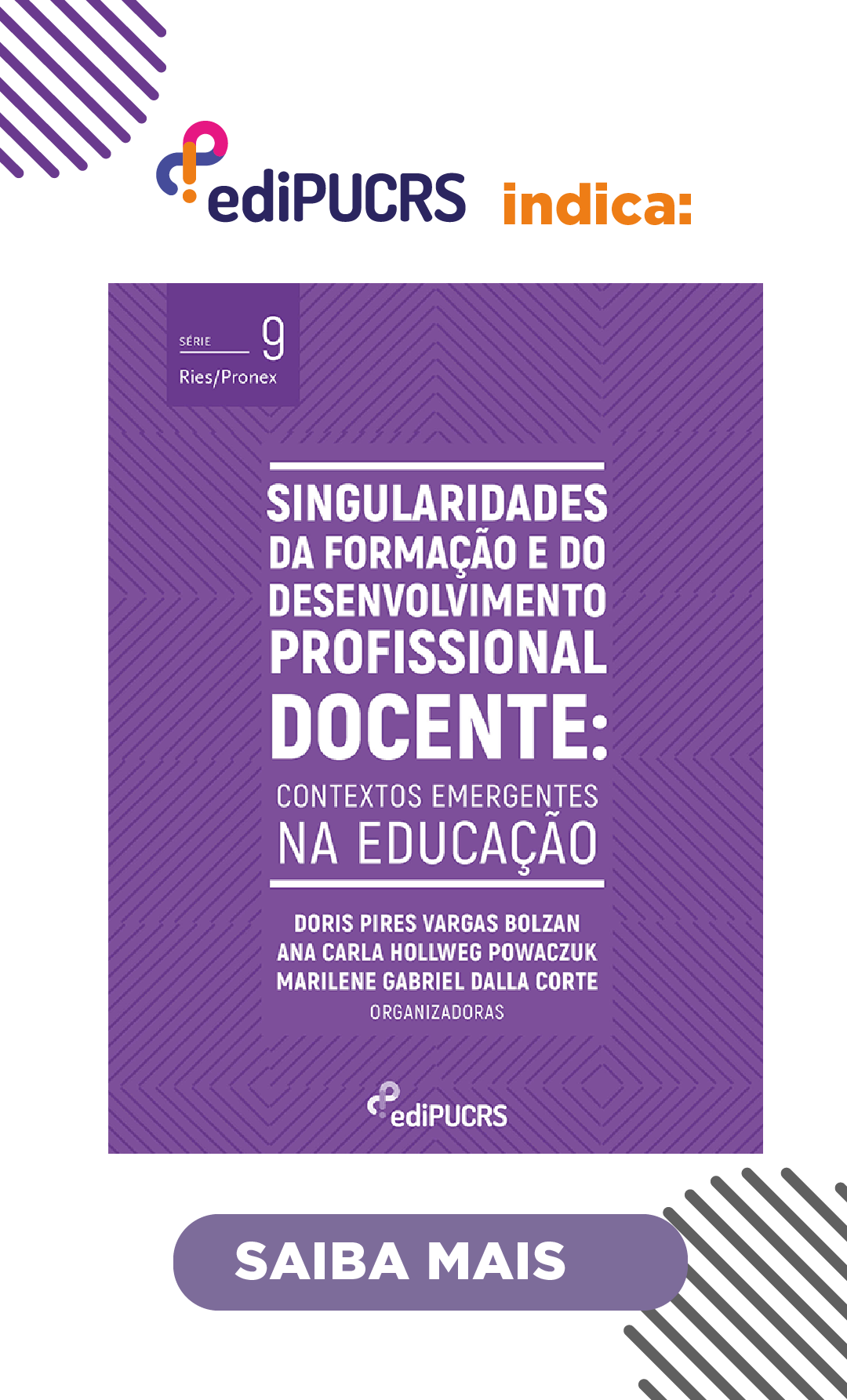Learning Projects in the Perspective of Hybridism and Multimodality in the Context of Pedagogy Parfor: engage to Learn
DOI:
https://doi.org/10.15448/2179-8435.2019.1.31569Keywords:
Parfor. Pedagogy. Learning projects. Hybridism. Multimodality.Abstract
It is common, when I teach academic activities that approach the digital technologies, that the students initially bring in the speech: “this can not do”, “at school does not have equipment”, “the lab can not be used”, etc. This shows that there is often a resistance to rethinking their practices and adopting new ways of teaching, considering the students who are into the classroom. The research problem is to understand how PARFOR Pedagogy students take ownership of digital technologies through the engagement and development of learning projects from the perspective of hybridism and multimodality, providing the reinvention of their teaching practice? In order to answer such question, the methodology is configured as qualitative, of an applied nature and will perform a discursive textual analysis (MORAES, 2003) of the productions of the students in the activities carried out during the semester. As the main results, the data showed a good understanding and a strong commitment of the students in the methodology of learning projects and, with this, the overcoming of the resistance in relation to the digital technologies innovating in the pedagogical practices considering hybridity and multimodality.
Downloads
References
BACKES, L.; SCHLEMMER, E. Práticas pedagógicas na perspectiva do hibridismo tecnológico digital. Revista Diálogo Educacional. Curitiba, v. 13, n. 38, jan./abr. 2013, p. 243-266.
DI FELICE, M. Redes Sociais Digitais, epistemologias reticulares e a crise do antropomorfismo social. Revista USP, v. 22, p. 06-19, 2012a.
DI FELICE, M. ; TORRES, J. C. ; YANAZE, L. K. H. . Redes digitais e sustentabilidade - as interações com o meio ambiente na era da informação. 1. ed. São Paulo: Annablume, 2012b. v. 1.
FAGUNDES, L. C.; SATO, L. S.; MAÇADA, D. L. Projeto? O que é? Como se faz? In: ____. Aprendizes do Futuro: as inovações começaram! Coleção Informática para a mudança na Educação. Brasília, MEC, 1999. Disponível em: http://mathematikos.psico.ufrgs.br/textos.html (até a página 26)
LATOUR, B. Cogitamus: seis cartas sobre as humanidades científicas. Rio de Janeiro: Editora 34, 2016.
LEMOS, A. Cibercultura, tecnologia e vida social na cultura contemporânea. 2. Ed. Porto Alegre: Sulina, 2004.
LEMOS, A. O que é Cibercultura. 2010. (5 min 54 s). Disponível em: <https://www.youtube.com/watch?v=hCFXsKeIs0w>. Acesso em: 23 mai. 2016.
MINAYO, M. C. de S. O desafio da pesquisa social. In: MINAYO, M. C. de S. (Org.). Pesquisa Social: teoria, método e criatividade. 26.
Ed. Petrópolis, RJ: Vozes, 2007.
MORAES, R. Uma tempestade de luz: a compreensão possibilitada pela análise textual discursiva. Ciência & Educação, Bauru, v.9, n. 2, p.191-211, 2003.
SCHLEMMER, E. Mídia social em contexto de hibridismo e multimodalidade: o percurso da experiência na formação de mestres e doutores. Revista Diálogo Educacional. Curitiba, v. 15, n. 45, maio/ago. 2015, p. 399-421.
SILVA, E.L.; MENEZES, E. M. Metodologia da pesquisa e elaboração de dissertação. 3. ed. Florianópolis: Laboratório de Ensino a Distância da UFSC, 2001.
Downloads
Published
How to Cite
Issue
Section
License
Copyright
The submission of originals to Educação Por Escrito implies the transfer by the authors of the right for publication. Authors retain copyright and grant the journal right of first publication. If the authors wish to include the same data into another publication, they must cite Educação Por Escrito as the site of original publication.
Creative Commons License
Except where otherwise specified, material published in this journal is licensed under a Creative Commons Attribution 4.0 International license, which allows unrestricted use, distribution and reproduction in any medium, provided the original publication is correctly cited.





